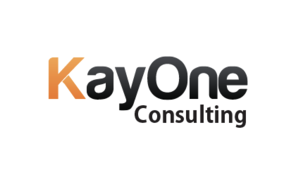How to Become a Good Accountant
Introduction
Today, you need to be more than a number cruncher to become an accountant. Depending on the different types of accountants, a career in accountancy comes with many perks. Modern-day accountants have different approaches to improving their job and approaching individual or corporate financial data.
Like other fields, finance has become a highly competitive space. And if you want to stand out in the market, you must develop essential skills to become successful. The good news is that accountants are in steady demand, and it is an evolving field that requires people to be highly adaptable.
In a capitalist order, the world revolves around business transactions, and the role of accountants will continue to be in the spotlight. Individuals and corporations need accountants to make sense of their financial statements and tax code.
From the perspective of corporations, it has become a money and time-saving strategy to hire the services of a resourceful and experienced accountant. Companies now count on accountants to analyze complex data and help them save money.
What Does it Take?
If you’re a man of principles and follow business skills, and have the skills to analyze numbers, you can have a successful accountancy career path. You’d b surprised how rewarding an accountancy career can be for you. Remember that you don’t need to figure out your specialization from the start. First, develop essential accounting skills and understand industry trends that interest you the most.
Now, to prepare for a future accounting career, you have to ask yourself a few questions first:
- What field of accountancy do you want to pursue?
- Do you want to work in private or public financial accounting services?
- What qualification do you need to start your accountancy career
- What accounting areas don’t interest you?
- What accounting areas do you find most appealing?
- How much time you’re willing to spend to get the relevant education and training in accounting?
[monsterinsights_popular_posts_inline]
Steps to Start Your Journey
People often get an undergraduate degree in a different field, like data science, and then start a career in accountancy through a master’s or bachelor’s program. On the other hand, some people get an accounting certification.
Remember to make personalized choices when you start to become an accountant. Ideally, you should break down your path and career choice and see whether or not it aligns with your skills. In any case, here’s how you can take a few steps to start your career in accounting.
Get a Bachelor’s or Master’s Degree
While it is optional, getting a bachelor’s or master’s degree in accounting can make a huge difference in your career. For starters, attracting top accounting firms and taking highly lucrative roles will make it easier. In getting a bachelor’s or master’s degree in accounting, you’ll build foundational knowledge and master key accounting principles and practices like GAAP or Generally Accepted Accounting Principles.
You can also take separate accounting and auditing courses to work in the private or public sector. Consider getting a bachelor’s degree in accounting as a starting point for your accountancy career. Most accounting bachelor students take up internships or entry-level positions in accounting firms to get first-hand experience and improve their resumes. And if things work out, accounting firms hire resourceful and skilled interns full-time.
Choose Your Accounting Specialty
Instead of being just an accountant – you can specialize in a particular sector. For instance, you can become an expert in forensic accounting or personal finance and accounting. Each accounting specialization has perks and limitations, making you more attractive to potential clients.
Take into your accounting interests and see what you can pursue. Regarding accounting specialization, you can opt for business valuation, government finance, environmental accounting, tax accounting, non-profit accounting, information management and tech assurance, and international accounting.
[monsterinsights_popular_posts_inline]
Get an Accounting Certification
Even when you become an accountant, you can continue to get added certifications to develop new skills or improve existing ones. Getting additional accounting certification enhances your professional credibility and sets you apart in a competitive market.
You can earn multiple accounting certifications, each different from the others. Certified Public Accountant (CPA) is arguably the most famous certification and can transform your accounting career.
CPAs make the best chief financial officers in companies. Conversely, you can get an education from the institute of management accountants or become a certified management accountant (CMA).
Choose a CPA
It is an added certification that would increase your industry exposure and personal development. Remember that CPAs can act as accountants, but accountants cannot offer services as CPAs. CPAs meet extensive state requirements and earn specific licensure.
Employers also appreciate the CPA’s value in the form of bonuses and promotions. Some firms incentivize their accountants to get a CPA license so that they can improve how they perform their duties and responsibilities.
Skills You Need to Become Proficient and Successful
If you want to become an accountant, you will have to develop essential skills to start a career and ensure long-term success:
Critical Thinking
It is common for accountants to find data inconsistencies, discrepancies, and errors. Failure to address and resolve these mistakes can create severe consequences for clients and employers. To address such complex issues, accountants tap into their critical thinking and consider all the risks and variables.
Critical thinking is one of the invariable skills for an accountant. It allows an accountant to make fair judgments, perform precise data analysis, and help employers/clients form effective financial strategies.
[monsterinsights_popular_posts_inline]
Analyzing Data
One of the hallmark skills of an accountant is to analyze complex data in a detailed manner. Accountants can review various financial information and consider every detail before making final calculations and recommendations. Data analysis is an essential component of being an accountant.
The most skilled accountants know how to review analyst reports and determine whether figures make sense. Great accountants have a knack for centralizing data analysis and assessing whether or not the information is reasonable.
Flexibility to Adapt
An accountant can never generalize financial reporting frameworks and guidelines, and professional accountants follow the tide of changing practices and reporting guidelines. The best accountants are always prepared to embrace new tech changes, protocols, platforms, and standards to attain and maintain client interaction.
Without this skill, accountants cannot undertake new projects and clients. There are specific rules, and accountants must be comfortable adapting to recent changes rather than holding onto traditional and outdated practices.
Direct Communication
It is not enough to analyze financial records – accountants must communicate the findings. If the client has a solid understanding of financial concepts and knows how to speak, he wouldn’t need data interpreters to make sense of the information.
Assertive communication helps accountants strengthen their interactions with clients. Direct contact transforms charts, tables, and quantitative data into a straightforward story so the average client can understand.
Professional and experienced accountants value communication skills and understand that they can simplify the complexity of information to the clients. Like all professional roles, direct communication allows accountants to make information accessible to clients or employers. Expert communication also helps accountants to get more career opportunities.
[monsterinsights_popular_posts_inline]
Organizing and Time Management
Accountants are famous for always being on time. Accountants must be two steps ahead to meet deadlines and navigate multiple clients. And this requires accountants to be highly organized. Today, accountants use digital tools to store and manage different types of documents.
Time management and careful organization are two crucial soft skills to becoming a successful accountant. Also, it helps accountants earn the respect of their employers and gain a market reputation. Since the work of an accountant can fluctuate, accountants depend on their plans to manage different clients and reports. Accountants track their time to meet strict deadlines like filing tax returns.
Innovative Drive
In the last decade, accounting professional has become more expansive and complex, requiring accountants to be more ambitious and innovative. Even when dealing with numbers, accountants must use different techniques and methods to help businesses grow innovatively.
Accounting is more than just meeting basic calculation requirements – it is about using different accounting practices in different situations. Accountants often develop new ideas that positively impact the company’s future and improve its accounting strategy.
In-depth Industry Knowledge
An element that separates a good and a great accountant is extensive industry knowledge. Apart from mastering foundational concepts, accountants need to be aware of industry trends that can impact financial statements.
Accountants need a high degree of technical proficiency in different topics. Ultimately, this comprehensive industry knowledge makes it easier for accountants to differentiate technical information and strengthens their understanding of basic concepts and principles.
[monsterinsights_popular_posts_inline]
Credibility and Reliability
Accountants must often be at the forefront to help company executives and decision-makers contextualize complex data. Accountants should be able to take new initiatives with enthusiasm and demonstrate in-depth industry knowledge to help companies optimize operations.
Over time, accountants build more resilience and improve their credibility and reputation. It takes trust, commitment, and a strong will to build a successful career in accounting. And if the accountant is already associated with a famous brand or company, he should find new ways to help the brand improve its financial position.
Self-awareness
Like commercial market awareness, accountants need to be self-aware about their choices. It is common sense to see how a company’s financial position ties together with external economic conditions. Awareness also involves understanding political and social impacts. Self-awareness often pushes accountants to improve their skills and realize their full potential.
Diverse Work Experience
Most commercial businesses gravitate towards accountants with diverse work experience. And that’s because an accountant with experience working for different employers and clients can better perform data analysis, review financial records, and make future projections. Experience matters, and accountants with the most diverse CV attract top-tier clients and employers.
Problem-Solving Mind
Despite significant tech advancements and robust digital tools, accountants cannot depend entirely on modern-day solutions. Accountants must adopt a problem-solving mindset and use these tools to make accurate financial projects and data analysis.
Problem-solving skill is one of the most sought skills in all industries. It is no wonder clients and employers usually opt for problem-solving people to do more than just crunch numbers – but analyze data with reasoning and resolve existing and potential issues.
Problem-solving people have an eye for details. There is no room to make errors when analyzing a client’s finances. And attention to detail paired with a problem-solving mindset allows accountants to spot errors and irregularities that ordinarily would’ve been invisible to others.
[monsterinsights_popular_posts_inline]
Popularity and Practicality of a Career in Accountancy
Accountants render financial services and give their professional advice to clients. Even in the tech-driven age, accountancy has become one of the most glamorous career choices. People now use many digital tools to analyze data and make highly informed, logical, and calculated decisions.
The most successful people pay close attention to detail. If you’re detail-oriented and have a thing for numbers, you can set your right foot into the accountancy world today. However, create short-term and long-term plans about what you want to achieve in an accountancy career.
Contrary to naïve misconception, people in this field need soft skills to communicate data. The fact is that modern-day accountants incorporate a lot of elements using robust task management tools for seamless organization and time management skills. Employers now favour those who can simplify data and communicate complex aspects to involved stakeholders.
Final Thoughts
On the surface, accountancy may seem too technical, but as long as you have some ambitious drive, you can tap into the best aspects of accountancy. Of course, there is a long list of elements that leads to a successful career in accountancy.
You may possess the skills that can help you stand out in your accountancy career. The key is to pay close attention to your overall abilities and knowledge and turn your weaknesses into strengths. Opt for the best learning opportunities and get the courses, degrees, and certifications to steer your accountancy career in the right direction.




